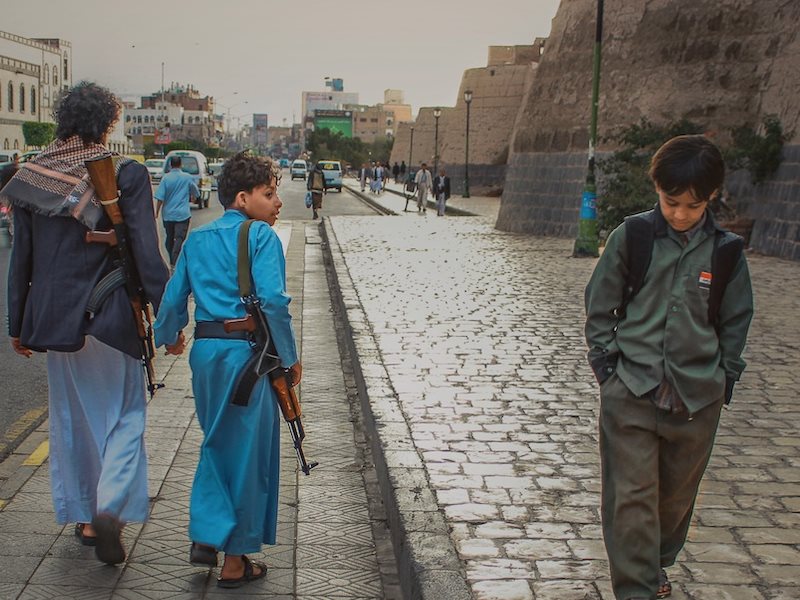
Photo credit: Ali Al Sonidar 'The Way of Light'
Nearly ten years since the onset of the crisis in Yemen this discussion will provide an in-depth assessment of the conflict over the past decade. Panellists will examine the local origins of the war, the humanitarian catastrophe that has ensued, and the challenges for sustainable development given the prolonged violence. Regional dynamics fueling the crisis will also be analysed, including factors related to the war in Gaza. With the March 2024 milestone approaching, speakers will assess stalled peace efforts and policy options for international stakeholders moving forward.
This event is starting early to accommodate the Ramadan timetable. There will be a light reception afterwards with the opportunity for attendees to break their fast and network.
Meet the speakers
Ahmed Al Khameri is the Team Leader for the FCDO-funded programme, The Yemen Support Fund at Chemonics UK. Previously, he was Programme Director for the FCDO-funded Yemen Peacebuilding Program – Josoor, a four-year program to resolve local conflict and enhance social cohesion. Ahmed also served as a project manager for the FCDO’s Syria Education Program, Manahel. Prior to joining Chemonics, he spent seven years serving in governance advisory roles to DFID with an emphasis on Yemen conflict dynamics. Most recently, he was the governance advisor under the DFID Yemen team leading DFID’s stabilization and governance efforts.
Marwa Baabbad is Director of the Yemen Policy Centre. She is a researcher and development consultant with over ten years of experience working in the fields of community engagement, gender, peace and security, and youth political inclusion. Marwa was Director of the Oxford Research Group (ORG) Strategic Peacebuilding Programme between 2018-2020. There, she led the delivery of a Track-II project that fed into the United Nations-led Yemen peace process.
Andreas Krieg is Associate Professor at the School of Security Studies at King’s College London and a Fellow at the Institute of Middle Eastern Studies. Andreas is the Director of MENA analytica – a political risk firm – that works on Yemen and the Horn of Africa. He has spent more than ten years living, studying and working across the MENA region. Andreas was able to complement his years in the Levant, i.e. Lebanon, Syria, Israel and Palestine, with four years in Qatar where he was involved in delivering a strategic contract between the State of Qatar, the UK Ministry of Defence and King’s College London.
Greg Shapland is an independent researcher, writer and consultant on politics, security, resources and environment (including water) in the Middle East and North Africa (MENA). Greg is also a Visiting Senior Fellow at the LSE Middle East Centre. From 1979 until 2015, he served in the MENA Research Group in the FCO. He was also Head of Research Analysts from July 2010 to July 2013. Since leaving the FCO, Greg has worked on post-conflict stabilisation, Israeli-Palestinian relations, inter-state and intra-state water disputes and the impact of climate change in the MENA region. He has a particular interest in the interactions between geographical phenomena (including the natural environment and resource endowment) and politics and governance. He is currently working on a book on the politics and geography of the MENA region.
Join the conversation on Twitter using #LSEMiddleEast
From time to time there are changes to event details so we strongly recommend checking back on this listing on the day of the event if you plan to attend.